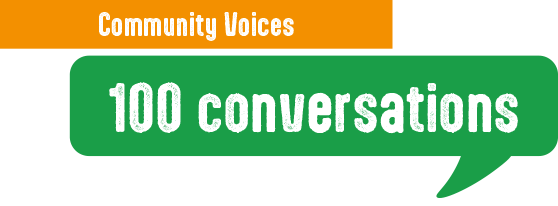People and communities
In Dorset we have a range of ways to engage with you. Healthwatch Dorset, young listeners, the voluntary sector and patient experiences all gather information that helps make decisions about health and care services.
Having a ‘continuous conversation’ with these groups is important if we want to get the best health outcomes for people in Dorset. It ensures that your voices are
heard when we are planning services and gives us the ability to feed back to communities with ‘you said, we did’.
We want to practically support the other things that can have an impact of our day-to-day lives – things like family, friends, work, community activities, the environment, and where we live.
We want to have honest conversations about what we can and can’t deliver, and to start those conversations with you as early as possible. If we have to stop doing things, we’ll be clear about why.
By putting people and communities at the heart of everything we do, we can move away from ‘them and us’ culture to work in a more ‘all of us’ culture as people of Dorset.
We are:

Although talking with people and communities isn’t a new concept, we want to do things differently to how we’ve done them in the past.
To truly reflect the voice of our communities, we’ve been gathering stories about the lives of over 100 people living across the county through the 100 Conversations project. Working with industry experts The Point of Care Foundation we have trained over 45 interviewers from a range of backgrounds to have a conversation with people from all walks of life in Dorset, including people from deprived communities, minority communities and disability groups. We will reflect on what we’ve heard from people to make sure we’ve got it right.
A lot of what you’ve read in this strategy has come directly from the people and communities that live in Dorset. The engagement we’ve started through the 100 Conversations project will continue at an even more local level as we look to understand people’s priorities in what we need to do, how to do it, and who to work with to provide services that are built to last.
“I felt privileged, and a bit in awe actually, of the people I’ve interviewed so far. Their journeys have been quite powerful to listen to.
“I have great anticipation that this will enable us to understand our communities better, and I hope that we can continue to listen on an ongoing basis to as many people as want to share their experiences as possible.”
100 Conversations interviewer
